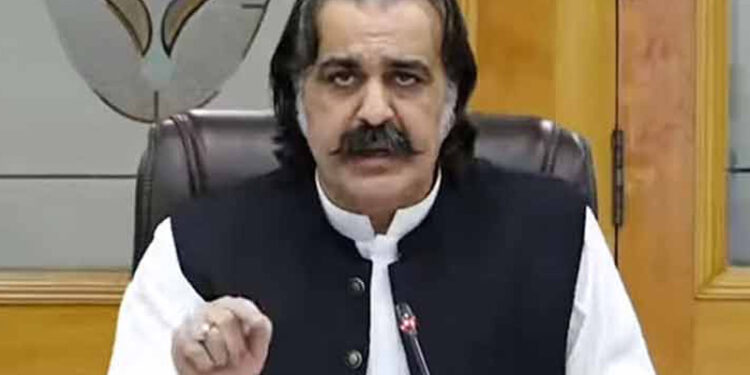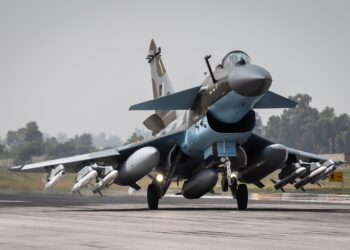Introduction: Addressing the Rising Security Challenges in KP
In light of the deteriorating law and order situation in Khyber Pakhtunkhwa (KP), particularly in the merged districts including North and South Waziristan, the provincial government has announced a major political initiative to address the escalating security threats. Chief Minister Ali Amin Gandapur has declared that the government will convene an All-Party Conference (APC) to unite political leadership in devising a joint strategy to combat terrorism and promote lasting peace in the region.
The decision was made during a high-level meeting chaired by the Chief Minister, which was attended by provincial ministers, security officials, and administrative heads. The meeting focused extensively on the law and order issues emerging in the tribal belt and emphasized the need for consensus-based, inclusive, and transparent solutions.
Background: A Region Battling Extremism and Insecurity
The merged districts, formerly known as the Federally Administered Tribal Areas (FATA), have historically been vulnerable to militancy, insurgency, and cross-border infiltration. Although the region was merged into Khyber Pakhtunkhwa in 2018 through constitutional amendments to ensure socio-political integration and development, persistent security challenges continue to undermine progress.
Over the past several months, a noticeable uptick in terrorist activities, targeted killings, and attacks on law enforcement agencies has reignited concerns over the region’s fragile stability. These concerns have led the provincial government to take a more proactive and unified approach involving all political stakeholders.
High-Level Meeting: Focused Strategy for Peace and Security
During the meeting led by Chief Minister Ali Amin Gandapur, detailed briefings were given on the recent law and order developments in North and South Waziristan. The attendees discussed reports of militant regrouping, community discontent, and gaps in coordination between provincial and federal security institutions.
In response, several key decisions were made:
- Formation of a Multi-Party Delegation: A government-led delegation will be formed to visit the affected regions. The purpose of this delegation is to gather ground-level feedback, assess the needs of local communities, and foster confidence among the people.
- Public Consultation Drive: The delegation will engage directly with tribal elders, community representatives, civil society, and local administration. The goal is to initiate an inclusive consultation process aimed at empowering local voices in the fight against extremism.
- Emergency Meeting with Legislators: An emergency meeting involving Members of the Provincial Assembly (MPAs) and Members of the National Assembly (MNAs) from the merged districts will be held to gather inputs, address concerns, and ensure unified legislative support.
- All-Party Conference (APC): The centerpiece of the initiative is the APC, for which formal invitations will be extended to the parliamentary leaders of all political parties. The APC aims to draft a consensus document outlining strategic, operational, and policy-level measures for restoring peace and security in KP.
Chief Minister’s Remarks: A Call for Unity Over Politics
Speaking at the meeting, Chief Minister Ali Amin Gandapur stressed that the gravity of the security situation demands political maturity and national unity.
“It is the need of the hour that all political parties should rise above their differences and adopt a common strategy. This is not a time for point-scoring; it is a time for national duty,” said the Chief Minister.
He further stated that terrorism cannot be fought by the government alone. Only through collaborative effort, collective responsibility, and public confidence can peace be achieved. Gandapur emphasized that every decision taken must involve meaningful input from political leadership, tribal communities, and state institutions.
Objectives of the All-Party Conference on Law and Order
The APC is expected to play a pivotal role in developing a long-term roadmap for peace. Key objectives of the conference include:
- Developing a shared understanding of the current law and order situation.
- Proposing a multi-pronged counter-terrorism and community engagement strategy.
- Building consensus on resource allocation and institutional support for affected areas.
- Ensuring bipartisan oversight of provincial security and development policies.
- Promoting interfaith harmony, inclusion, and a culture of peace at the grassroots level.
Public Involvement and Confidence-Building Measures
The provincial government also plans to launch awareness campaigns and hold town hall meetings to engage directly with the citizens of KP. Public involvement is considered a cornerstone of the broader peace-building process.
Programs will include:
- Community policing initiatives
- Youth engagement in peace missions
- Training and deployment of local volunteers for civic vigilance
- Strengthening dispute resolution councils in tribal areas
By making communities active participants in the security dialogue, the government hopes to restore trust and prevent further radicalization.
Security Situation in KP: A Critical Review
Recent months have seen an alarming increase in incidents attributed to banned militant outfits operating in KP, particularly in areas bordering Afghanistan. Analysts believe that the return of the Taliban in Afghanistan has emboldened certain factions who aim to re-establish operational bases in Pakistan.
Security analysts and tribal leaders have repeatedly called for better border management, enhanced intelligence-sharing, and the immediate resumption of development projects to undercut militant recruitment.
Federal-Provincial Coordination: A Key Component
The Gandapur-led provincial government has also called upon the federal government to support its initiative with adequate funding, military coordination, and administrative assistance. Federal ministries such as Interior, Defence, and Planning are expected to be invited to participate in the APC.
Additionally, intelligence agencies will be asked to provide threat assessments and operational updates to help shape a fact-based security strategy.
Expert Reactions and Political Commentary
Political analysts have praised the move as timely and essential. They argue that involving all parties in matters of national security builds ownership and reduces the risk of polarization.
Civil society groups, meanwhile, have urged the government to include women’s voices, human rights defenders, and youth leaders in the dialogue to ensure a holistic approach to peace.
Conclusion: A Path Toward Long-Term Stability
The decision to convene an All-Party Conference represents a bold and necessary step toward stabilizing Khyber Pakhtunkhwa’s volatile security landscape. By bringing together political rivals under one roof, the provincial government aims to build consensus, legitimacy, and actionable outcomes in its fight against terrorism.
Chief Minister Ali Amin Gandapur’s vision underscores that peace in KP is not just a regional necessity—it is a national imperative. If successful, the conference could pave the way for a new chapter of inter-party cooperation and resilient governance in Pakistan’s most vulnerable province.

























